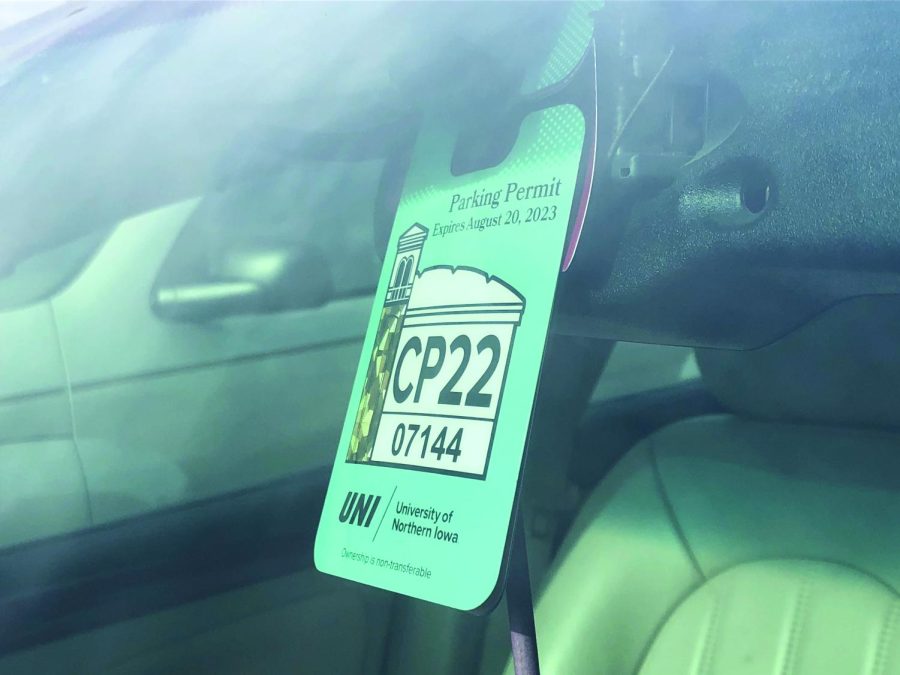House Bill 63, introduced to the Iowa House this January, aims to streamline the regent university general education requirements as determined by the Iowa legislature. If passed, this could mean that regent universities like UNI would be required by law to abandon the current curriculum they utilize for general education requirements and adopt the curriculum requirements passed into law.
As the bill currently stands, the new general education requirements would include six credit hours of English composition, six credit hours of mathematics and statistics, six credit hours of natural sciences, six credit hours of social sciences, six credit hours of humanities, three credit hours of western heritage and three credit hours of American heritage. The bill also includes six credit hours of world languages, which is an admissions requirement for prospective UNI students. Beyond new requirements for credit hours to satisfy general education requirements, the bill also denotes that “The bill requires [The Board of Regents] to adopt a policy to ensure that courses that satisfy the general education requirements do not distort significant historical events or include any curriculum or other material that teaches identity politics or is based on theories that systemic racism, sexism, oppression, or privilege are inherent in the institutions of the United States of America or the state of Iowa,” the bill continues, “The policy shall not limit the academic freedom of any course instructor to direct the instruction within the instructor’s course or limit the free discussion of ideas in a classroom setting.”
The bill is introduced to Iowa’s state house in UNIFI’s sixth semester. UNIFI was created as a replacement general education program for UNI’s former Liberal Arts Core. Jeremy Schraffenberger, an English professor at UNI and curriculum coordinator for UNIFI, began working with a curriculum committee to reassess general education requirements back in 2017. After five years of work, the program was introduced in the fall of 2022. “We had to create this system, or the process for proposing new courses, and then create a new process for assessing the learning outcomes of the program,” said Schraffenberger. “So it was really, completely from the ground up. We removed all of the courses and had to repopulate it.”
The 37 credit program amasses a wide variety of options for students to build their schedules and explore classes that interest them while fulfilling their general education requirements. It also introduced general education course certificates, where students can group together certain courses to build a certificate. These general education certificates “focus on examining the subject from a variety of disciplines,” according to the UNIFI website.
HB63, if passed into law, would replace the current UNIFI general education program with a prescribed general education program from the Iowa legislature. “This proposal would lead to less student choice,” said Schraffenberger. “And that’s troubling, on the one hand, because we believe students should have a choice in what courses they are interested in taking, while also covering the student learning outcomes that we recognized as important for an educated person.” According to Schraffenberger, student choice was built into the UNIFI curriculum, so students could work through the general education curriculum while taking classes that intrigued them. Schraffenberger added that the UNIFI scaffolding was built by UNI faculty for UNI students, and that HB63 would prescribe a curriculum to UNI students and faculty. Currently, the bill explicitly prohibits any additional general education requirements from a regent university not included in the bill.
Hayden Burke, a senior psychology student at UNI, noted that freedom of choice in course selection is integral to universities. “Our Iowa legislature has shown overwhelming and unsubstantiated bias when it comes to what topics are deemed appropriate or fit for school, which I personally don’t agree with and feel are abuses of power,” Burke said. “I would not trust the state to sculpt an encompassing or effective general education program.” Burke also noted that secondary education is an investment, an investment students see as a serious matter. “I pay thousands of dollars to exercise my independence to choose an educational institution and program that I want to acquire–having the government strip that right from me by implementing a statewide general education program would make me feel paralyzed as a student,” said Burke.
This current version of the bill has passed in the Higher Education Committee and awaits House approval to move to the Iowa Senate. The Northern Iowan will continue to update this story and how general education programs could be impacted at UNI as the bill moves throughout the legislative process.









